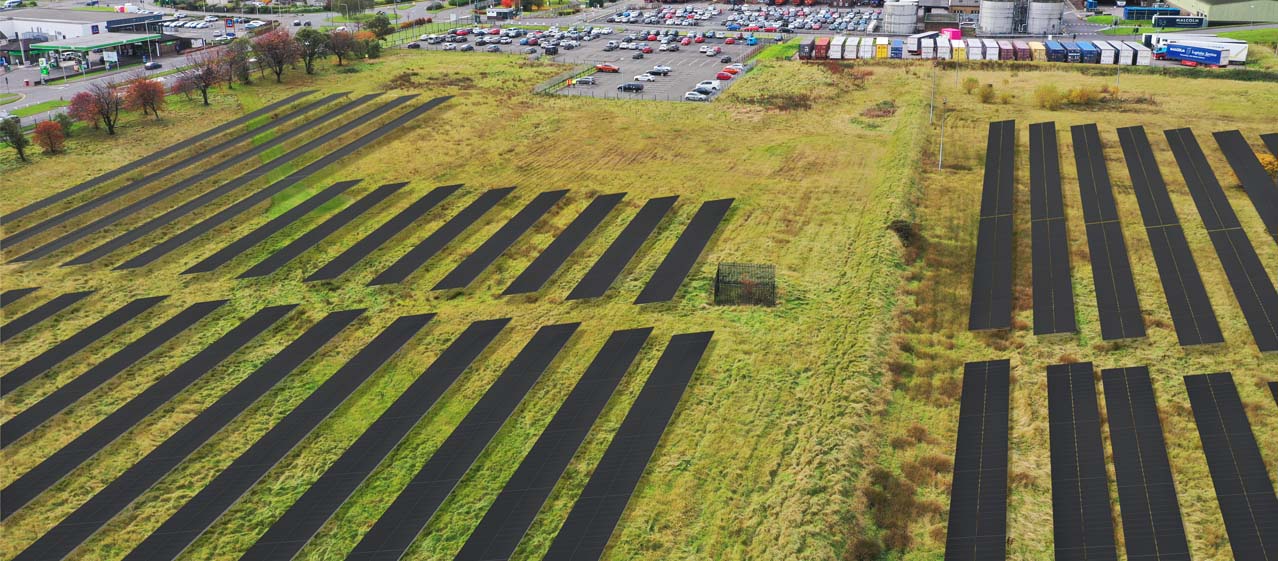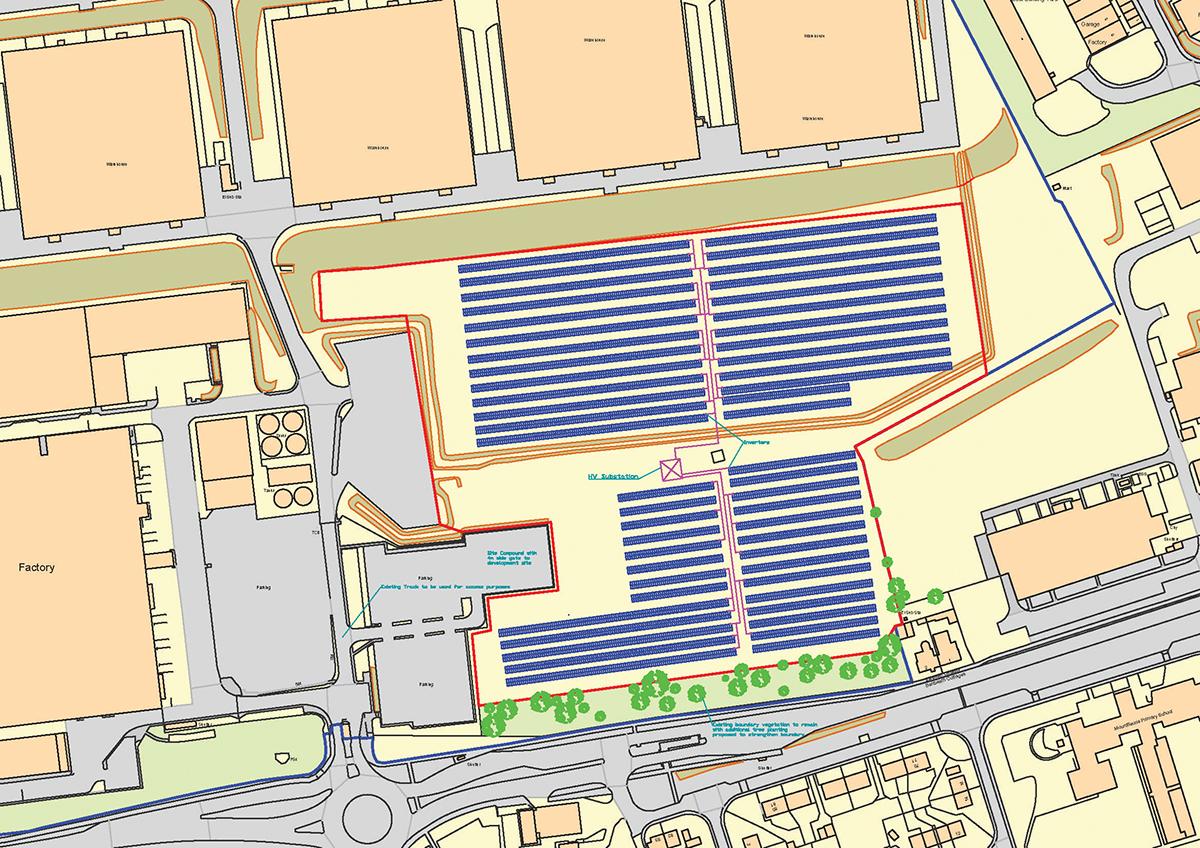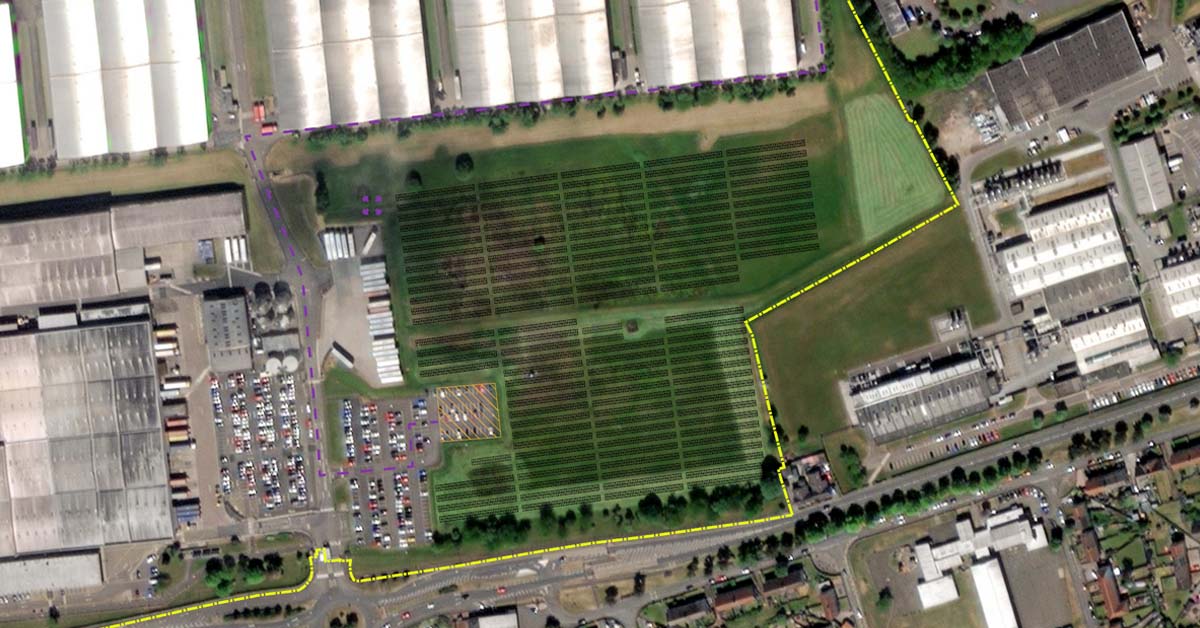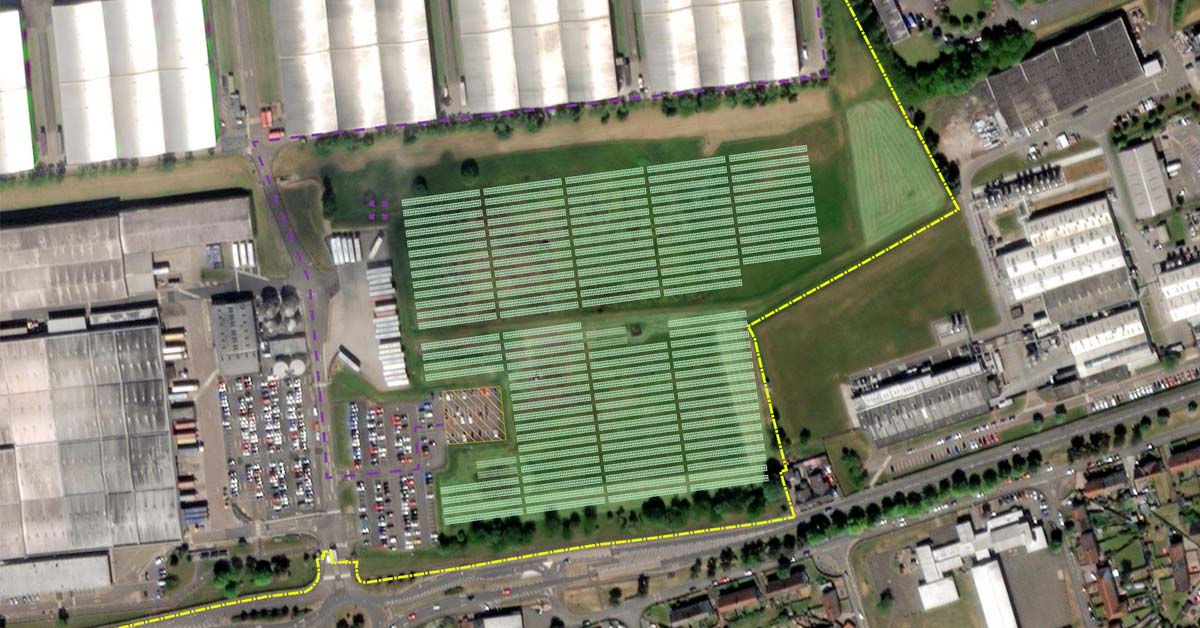
The drinks sector is critical to the Scottish economy, with distilleries, research and development, and bottling plants spread across the country. The industry requires a huge amount of energy to operate and Diageo is one of the largest in the global marketplace and the largest whisky producer by volume in Scotland.
As a large consumer of power, Diageo is active in pursuing alternatives to traditional forms of energy, with the company committed to sourcing 100% of its electricity from renewable sources by 2030.
One of the sites identified to benefit from renewable energy was Diageo’s 150-acre site at Leven in Fife. The site comprises a blending and bottling plant and Diageo's experimental Leven Distillery. Diageo approached energy experts, E.ON Connecting Energies, to design a renewable solution to offset draw on the national grid network. E.ON Connecting Energies identified an unused area of the site that would accommodate a 4.2MW solar array to provide power to the Diageo facility, with E.ON operating and maintaining the development throughout its working life.

PROJECT HIGHLIGHTS
- Project by E.ON Connecting Energies
- All electricity produced to be used on-site by Diageo
- 4.2 MW Ground-mounted solar array
- 9,410 panels
- 41 inverters
- 5ha development area
- Within a designated containment area for emergency use
- Schedule 2 EIA development
OUR EXPERTISE
- Planning works including screening opinion, planning application, site drawings, planning statement and application management
- Ecological surveys of the site, including a Phase 1 Habitat, Badger and Tree Survey
- Site assessments including Coal Mining Risk Assessment and phase 1 Contaminated Land Assessment
- Environmental assessments including potential impacts on heritage, landscape & visual, noise and glint and glare


APPROACH & SOLUTIONS
Fife Council has a history of supporting renewable development, but the urban location of the Diageo facility is in contrast to the prevailing rural demographic of previous energy projects in the region. This provided a unique challenge for our development team to address the potential impact on multiple receptors in close proximity to the site.
For our desk-based assessment of the site, we appreciated the need to prioritise ecological and tree surveys as further assessments could require specialist seasonal studies. This could have had a major impact on the construction timetable, something our Consultants were acutely aware of.
As a Schedule 2 development, Fife Council were engaged via a Screening Opinion as the initial environmental surveys were conducted. The authority agreed with our methodologies and scope of surveys which allowed us to begin the detailed environmental works on-site and prepare the planning application with our team carrying out the majority of the surveys and coordinating any specialist requirements.
As an additional support service, we provided a community consultation page for members of the public who were interested in finding out more about the development. To bring the development to life and make it more accessible, we included an interactive map of the site plan which was utilised by media sources in the news coverage of the development.

OUTCOME
The Local Planning Authority approved the application on the 8th of October 2021, which was within the 8 week target determination period for the application.
Fife Council stated within their decision notice:
"Approval of the development would result in a significant step forward in the company's (Diageo) journey towards net-zero carbon energy use for its flagship facility and help contribute to climate change targets and de-carbonising of the economy".
Eilidh Clark, our Planning & Environmental Consultant who led the project commented “solar development of this scale isn’t usually found in towns and cities. There were some challenges to overcome with the site, but being proactive in prioritising surveys to keep us in control of the process meant we achieved a successful outcome within the statutory timescale. Our Project Team is looking forward to visiting the site once the panels are installed”.
Construction is scheduled to begin in early 2023.






